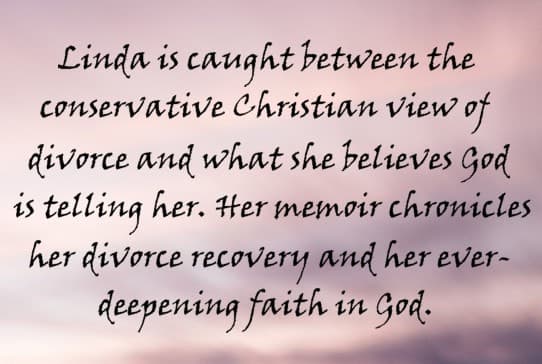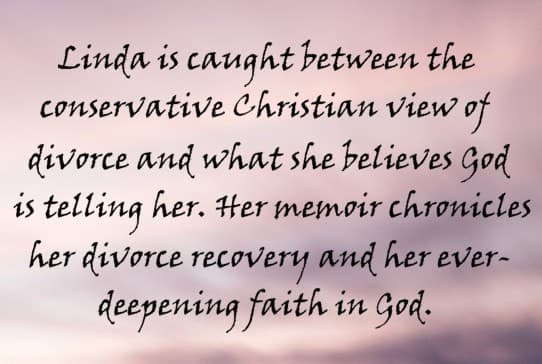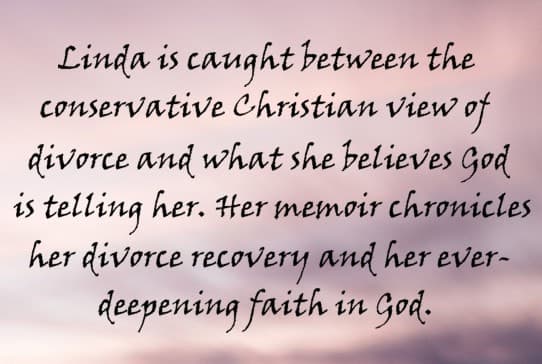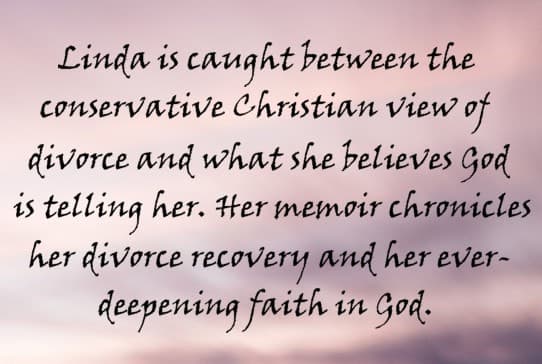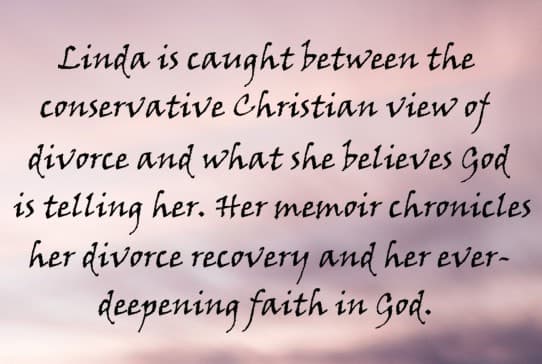Overcoming Divorce Shame, Part I
When I married my current husband, our announcement carried the tag line, “Third time’s the charm.” Both of us had been married and divorced twice. Even though we were Christians, we were not ashamed to admit it.
But that wasn’t true for me in the first month after divorcing my husband of twenty-five years. I’m writing this post for those of you who were left by a spouse, and for those of you who had a need to leave for your own well being and/or for the good of your children. Let's first look at reasons for divorce shame.
Losing Your Title
Why are many of us ashamed, when almost half of all marriages end in divorce? I believe one reason for women is they may identify strongly with being wives. I once met a woman who had written a divorce memoir entitled, Once a Wife. I couldn’t relate. To me, losing the title of wife paled in comparison with loss of love, companionship, security, and other marital benefits. Come to think of it, I don’t know of many divorced men who are ashamed because they no longer have the title of “husband.”(Let me know if I’m wrong here.)
Anyone can get married. Any woman can find a way to become a wife. If losing the title of “wife” is your issue, be creative and give yourself one or two new, more positive titles to accurately describe who you really are—someone much more than a wife.
Being Seen as a Failure
How about divorce seen as a sign of failure? Now we’re getting somewhere. Divorce is often equated with failure, and we are taught we shouldn’t fail, particularly with our significant life choices.
The Oxford dictionary defines failure as “the omission of expected or required action.” When we marry, we’re usually optimistic, “expecting” our marriage will last until the end of our lives. When it doesn’t, it’s easy to consider our marriage a failure.
Removing our children from a toxic situation should not be cause for shame.
When there are offspring involved, there’s also the failure of providing them with an “intact” family. However, you know in your heart of hearts that staying in a bad marriage for the sake of children is often not the best for them. Removing them from a toxic relationship should not be cause for shame.
Since it takes two to make a marriage, it’s likely you’re not totally responsible for its ending. It does no good to beat yourself up for whatever you did or didn’t do. Learn from the past and strive to move forward. You are responsible for being the best you can be for your children’s sake. This includes keeping your relationship with your ex as civil and professional as possible. Remind yourself, a marriage which lasts forever, with one or both partners miserable, is not a successful one.
One more thing… We often learn more from our failures than our triumphs. If you’re anything like me, deciding to divorce took a lot of courage. And, although your marriage ended, good things (like your kids!) probably occurred while married. You haven’t failed completely. Your marriage likely had worth, and you can be grateful for the good you experienced and brought to it.
Rejection
There’s often an element of rejection in divorce. The desire to divorce is usually not shared equally between partners, and rejection stings! Self-doubt creeps in, followed by shame. According to Patrick Wanis, Ph.D., “If a person cheats on his/her spouse, the perceived rejection and betrayal can trigger feelings of humiliation when others learn about the betrayal, or it can lead to shame if the person who is being rejected blames him or herself and concludes ‘there is something wrong with me.’” "Why Rejection Hurts So Deeply – Heartache, Humiliation & Shame"
Mar 23, 2016.
Believe him when he says, “It’s not you, it’s me."
The key here is to believe it when he says, “It’s not you, it’s me.” As much as you’d like to continue to be his one and only, he’s changed. He’s no longer the man he used to be, and that’s not your fault.
Divorce isn’t supported by your community of friends and family
Friends, family, perhaps even our children, can attempt to shame us when we fail to make our marriage last. We may be told we shouldn’t leave because we’d be throwing away all the time and energy we’ve invested in our marriage, as if we could somehow bank on such an investment.
Families may try shaming you for being the first to divorce, breaking their record of intact marriages and ruining their reputation in the community. If they truly loved you, they’d support you even though you broke their mold. Your family’s rejection can feel even worse than your spouse’s. Hang in there. When they eventually see how much happier you are forging a better life for you and your kids, they’ll likely come around. Besides, your happiness is the best revenge!
Divorce isn’t supported by your faith community
Being accused of turning your back on God and going against biblical principles when you choose to divorce can be devastating. I personally experienced this type of shame from my pre-divorce counselor, a pastor whose church I was interested in joining, and most upsetting of all, a conservative friend of my ex. This friend actually convinced me I should confess my sin to my ex, and ask forgiveness as well as reconciliation. Thanks to God, my ex rejected my request and I came to my senses.
This mind set can cause years of toxic shame to victims who leave.
There are personal accounts on my blog by women who describe the shaming and shunning they received by their churches for deciding to divorce their abusive husbands. One of my posts “Domestic Abuse: How Churches Can Help instead of Hurt” describes a common problem in cases of divorce among parishioners: “Church leaders may even urge the abused to forgive and reconcile with their abusers, emphasizing a theology of suffering, and using Scripture to elevate the sanctity of the marriage covenant over the safety of the abused.” This mind set can cause years of toxic shame to victims who leave.
I'm sorry to end on such a negative note, but this post is too long all ready! Look for Part II, "What You Can Do About Divorce Shame."
Blessings,
Linda M. Kurth is a writer and a divorced and remarried Christian. In going through the divorce, she experienced a dichotomy of responses from the Christian community. After sharing some of those experiences in her upcoming memoir, God, the Devil, and Divorce, she's heard many stories of divorced Christians who have struggled with the same issues. This blog invites divorced Christians to tell their stories with the goal of encouraging churches to resist condemnation and become a source of healing and grace.
Do you have a divorce experience to share? Have you been shamed by a church because of your divorce? Or encouraged? There are hurting people who would like to hear your story, who need to know they are not alone, and who need to be encouraged. If you are interested in sharing your story, email Linda for guidelines: Linda@LindaMKurth.com



